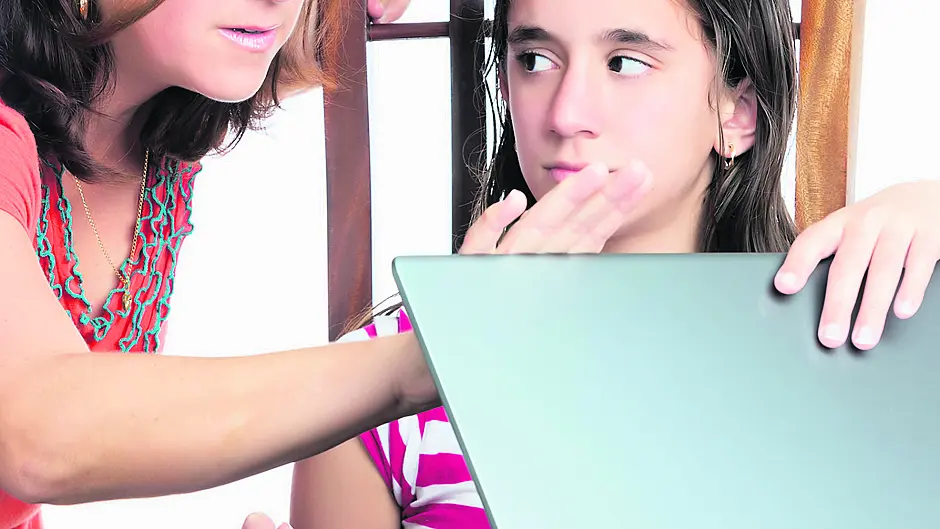Online trolling is making our young people feel overwhelmed, vulnerable, powerless, alone and disinterested in life, says forensic psychologist Dr Sinead McDonough
RECENTLY, the Dancing with the Stars TV show contestant Fr Ray Kelly was targeted by online trolls.
It happened in the same week as UK television presenter Caroline Flack took her own life, with many believeing the abuse she had been receiving online had taken its toll.
Online antisocial behaviour can have detrimential psychological outcomes for victims. The behaviour may be explained by The Online Dissinhibition Effect – the lack of restraint a person feels when communicating online versus face-to-face.
Trolls lurk everywhere online — on message boards, Twitter, Facebook, Instagram, dating sites, gaming platforms, YouTube video comments and anywhere that affords people the opportunity to express their views.
In a recent podcast interview with The Southern Star, outgoing Cork South West FG TD Jim Daly commented that while he got very little abuse on his own social media pages, he didn’t pay much attention to others, and didn’t ‘go looking’ for it elsewhere, but was aware that people can be quite nasty online.
And in an interview with radio presenter Ray Darcy in 2018, Clonakilty author Louise O’Neill said she had given up on social media ‘because the abuse and negativity was really beginning to impact’ on her mental health.
Trolling is defined as creating opposition via the internet by initiating arguments and upsetting people through posting inflammatory comments or messages. A social media troll will intentionally make a remark that is controversial in order to provoke others.
Often, in fact, it appears that there is no real motive behind their comments except to upset others in the online community.
Trolls can lie or exaggerate to illicit a response.
But what kind of person would do this?
Some researchers have identified the kind of emotional intelligence that makes internet trolls so mean.
Studies in the field have highlighted how high levels of cognitive empathy make trolls proficient in identifying how to upset someone and knowing when they’ve’ pushed the right buttons’.
Researchers also found that lack of affective empathy meant that trolls do not internalise the emotional trauma experienced by their victim.
Results showed that, when high on trait psychopathy, (often associated with thrill-seeking and impulsivity), trolls employ an empathic strategy for identifying the emotional suffering of their victims, while abstaining from the experience of these negative emotions. Creating mayhem online is a central motivator to troll, it seems.
Trolling often ends in a negative psychological outcome for the troll, despite them being the perpetrator.
I have delivered many online safety and cyberbullying workshops to young people and their parents in the West Cork community and I often hear young people disclose issues pertaining to trolling and cyberbullying.
It’s sad to hear about the types of bullying young people are nowadays being exposed to online. The psychological effects of trolling include anxiety, fear, depression, academic difficulties, anger, isolation, low self-esteem and suicidal thoughts. Young people often tell me they feel overwhelmed, vulnerable, powerless, alone and disinterested in life, as a direct consequence of online trolling and bullying. Parents often ask me how they can protect their children online.
Firstly, I remind parents that we shouldn’t always assume that their child’s internet use is problematic. Indicators of online bullying and signs to watch out for in childen include: quickly changing a screen when an adult is close; using device(s) at all hours of the night; being upset if they can’t use a device; avoiding discussion about what they are doing online; having multiple online accounts and becoming increasingly withdrawn or isolated from their family.
Parents can help children by knowing what social messaging sites or apps their child is using, asking their children about what they are doing online and who their ‘friends’ or ‘followers’ are, making sure all apps downloaded are approved by an adult and ensuring all their accounts are set to ‘private’.
Parents should also keep a screen grab if their child presents evidence of online trolling. Trolls in the virtual playground will strive to exist, so parents must continue to remind their children to disclose any online experience that may cause them distress.
• Dr Sinead McDonough is a forensic psychologist and owner of Safe Search Ireland which delivers internet safety and cyberbullying presentations to young people, parents and teachers in schools around West Cork and nationwide. You can contact her on: [email protected]
Subscribe to the Southern Star's YouTube channel, like us on Facebook and follow us on Twitter and Instagram for all the latest news and sport from West Cork.








